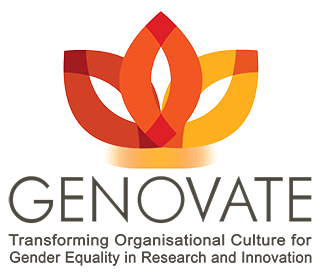 The GENOVATE Community is a platform which enables GENOVATE partners to share institutional information and case studies, and facilitates the coordination of a buddy system for bench learning.
The GENOVATE Community is a platform which enables GENOVATE partners to share institutional information and case studies, and facilitates the coordination of a buddy system for bench learning.
The GENOVATE Community consist of seven GENOVATE partner institutions; the GENOVATE International Advisory Board; key strategic collaborators and stakeholders and the general public. It is a mechanism designed to facilitate meaningful knowledge exchange across the community at local, national and international levels within each of the partner institutions’ countries, across Europe and globally.

The Swedish government is investing 2,5 million euros in making the country’s higher education sector gender equal. Thirty-three universities and university colleges will receive gender mainstreaming support from the Swedish Secretariat for Gender Research. The four-year programme was officially launched in Stockholm on the 16th of April.
Read more about the programme on http://www.genus.se/en/newspost/new-programme-for-gender-equality-in-swedish-higher-education/
Ylva Fältholm and Paula Wennberg were invited to an expert dialogue on February 9, 2016 in Stockholm organised by the Swedish Secretariat for Gender Research to discuss which challenges the programme should focus on when mainstreaming gender in the Swedish Higher Education.
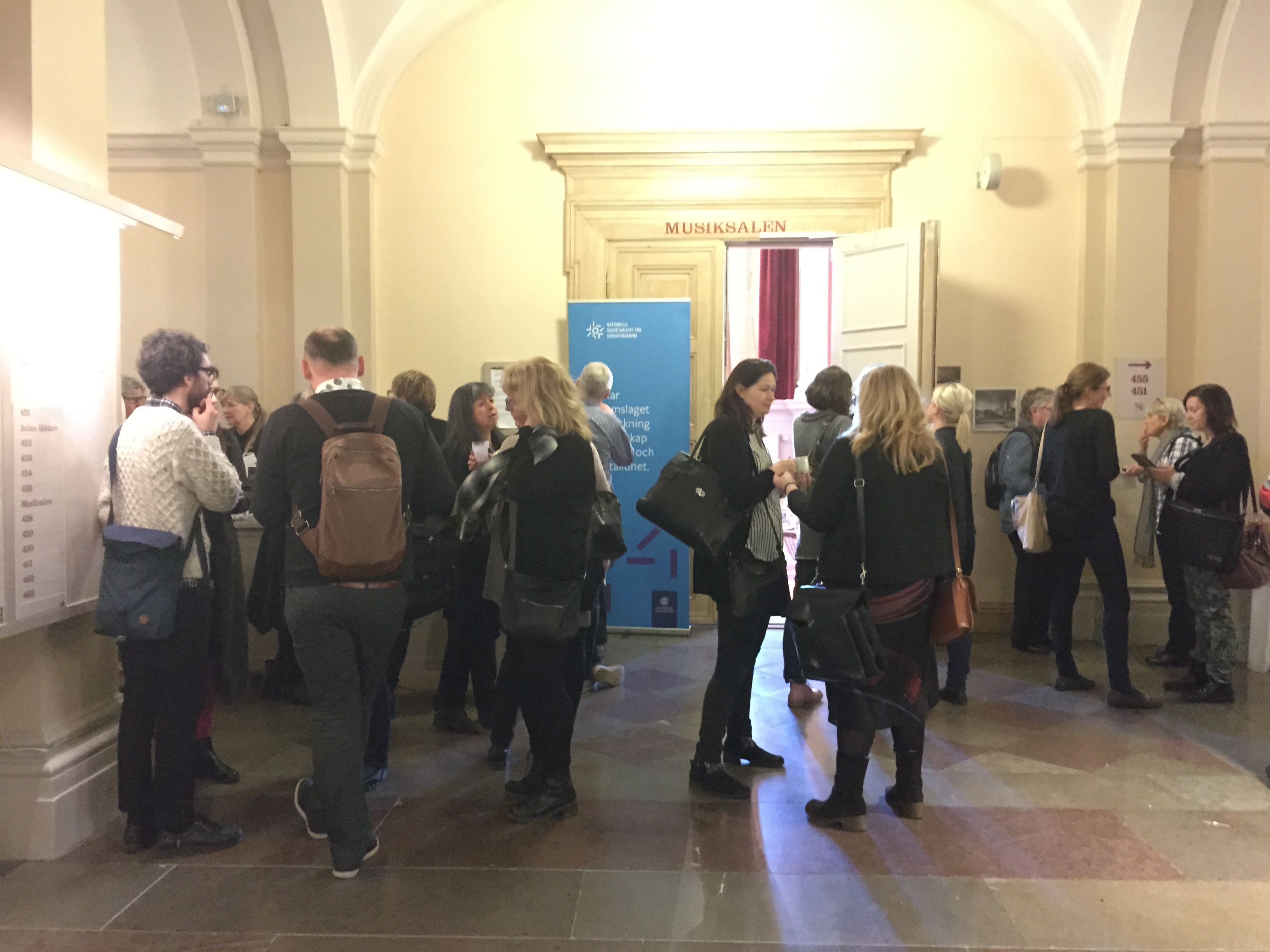
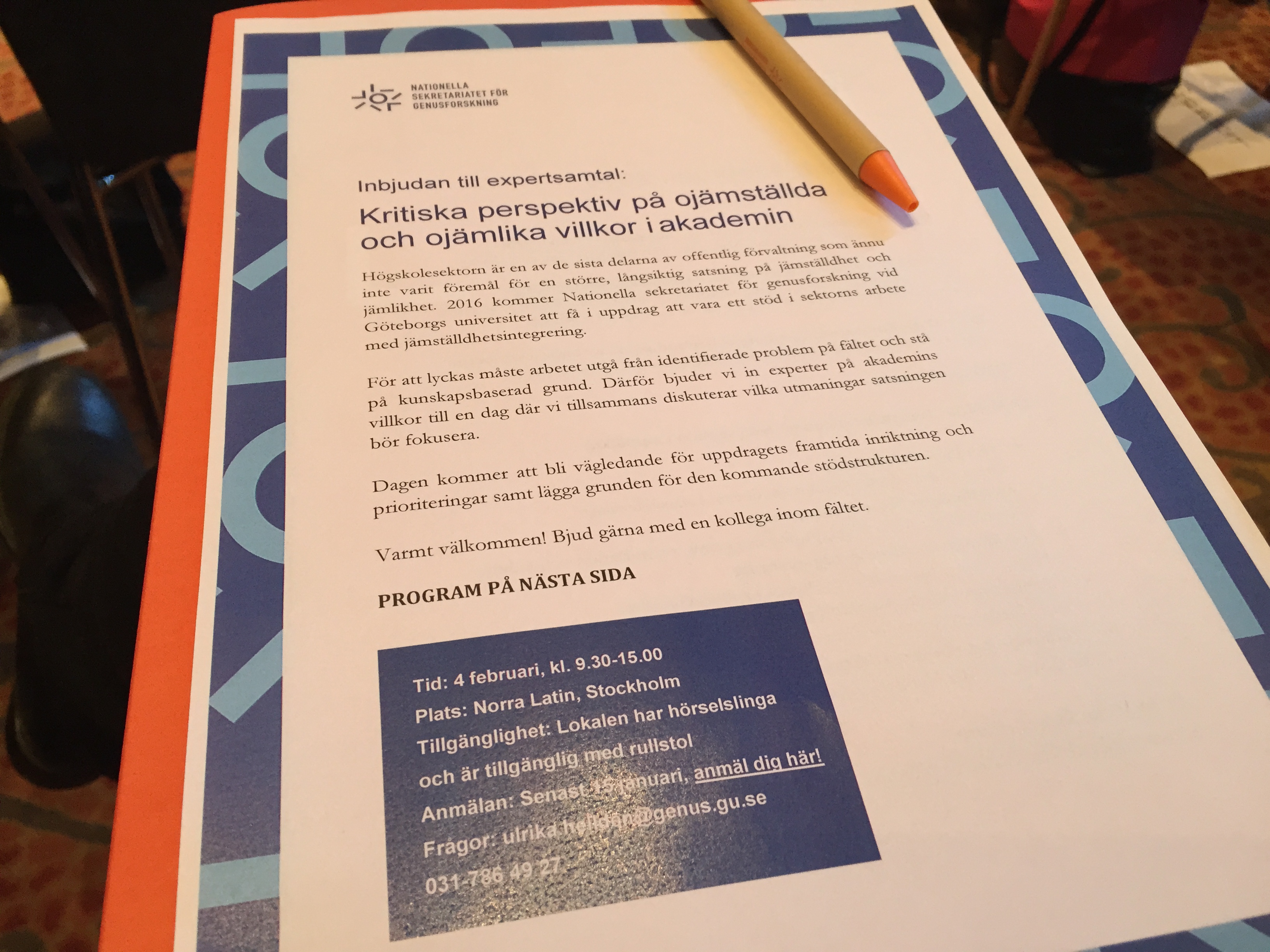

Vinnova, Sweden's innovation agency, organised a briefing on the program Science with and for Society in Horizon in 2020 on January 20, 2016. Horizon 2020 is the world's largest research and innovation programs with a budget of almost 80 billion euros over the period 2014-2020. The program focuses on turning scientific breakthroughs into innovative products and services that can lead to new business opportunities, jobs, and that can improve people's lives. The program Science with and for Society 's goal is to involve various actors in society and other stakeholders in research and innovation processes, with intention to enable collaboration between academia, industry and the public. Gender equality and encouraging young people to take an interest in science and a career in research and innovation are other important areas of focus.
Noora Eronen, EC Policy Officer from DG RTD and invited speaker picks up the gender dimension of LTU's energy project as one of the good examples.
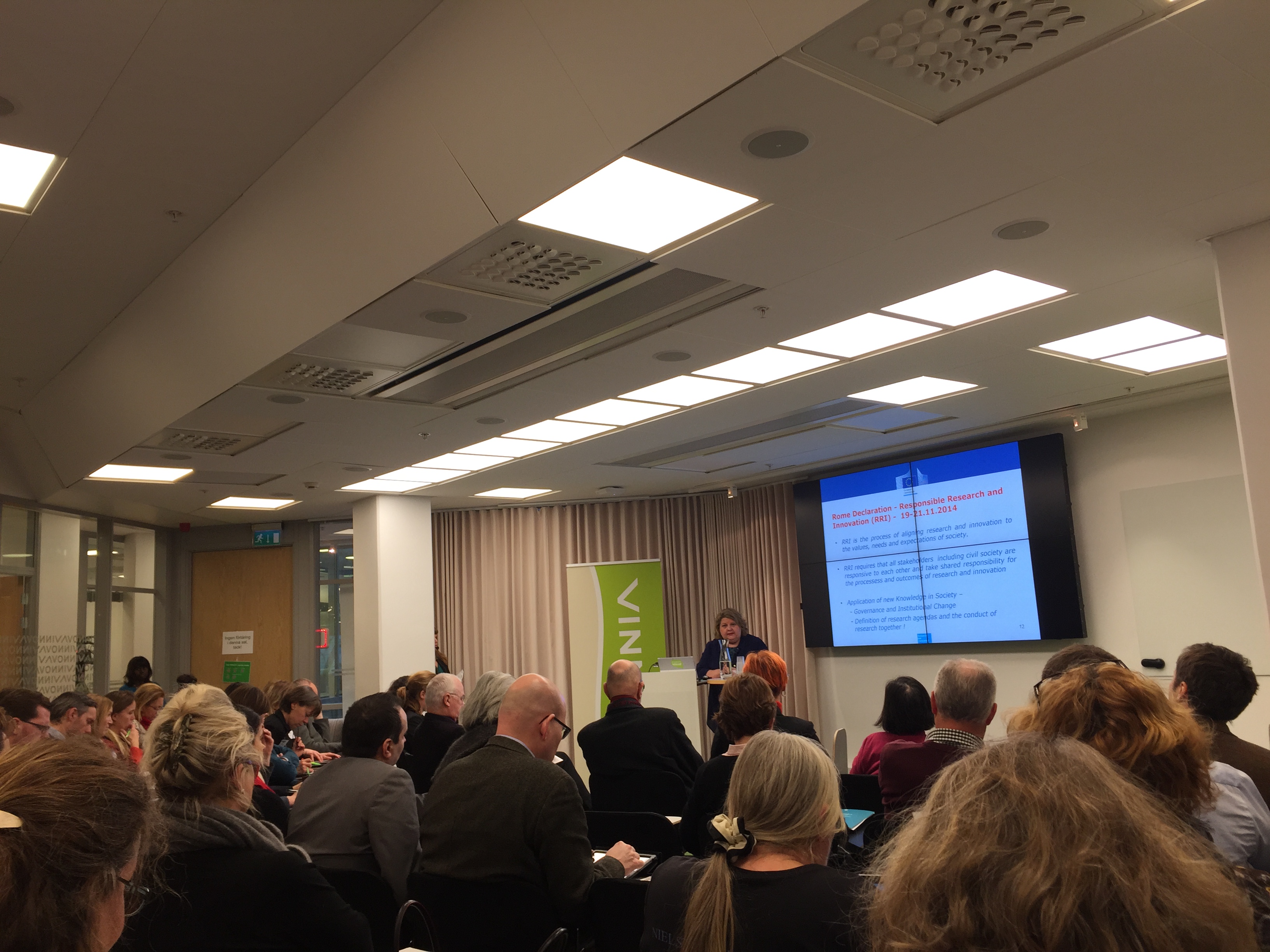

GenPORT portal for quality resources in gender and science will be launched on April 21, 2016 in Brussels - SAVE THE DATE
-The Launch will begin at the European Parliament where you will hear from Members of the European Parliament and other policy makers, alongside GenPORT representatives. The session will examine the European STEM and gender landscape and how GenPORT can support policy making. We will then relocate to nearby Residence Palace were we will hear from international bodies on their latest work in the field and give participants ample time for discussion.
GenPORT is an FP-7 project that is developing a portal to quality resources on gender and science, covering multiple interest areas and resource types. The portal will be formally launched on 21st April 2016. In addition to providing information about published research, studies, events, etc. the portal also offers access to experts and opportunities for sharing and exchanging knowledge and experience.
Read more on www.genderportal.eu

The seminar on a gender and equal opportunities perspective in research projects and funding applications with Paula Wennberg, LTU as invited speaker brought together 25 participants from diverse disciplines of Uppsala University. Åsa Cajander, associate professor of human-computer interaction, the organiser of the seminar on February 29, 2016 has a role of the gender equality officer at the university.
- Funding organisations such as Vinnova, VR and Forte now require a gender and equal opportunities perspective. When applying for funding we hence need to describe how we incorporate gender and equal opportunities in the project work, such as in tests. We also need to describe how the project team from a gender and the equal opportunities perspective, and also the contribution of the mix of gender, ethnic and cultural diversity. One should note that the assessment of the applications is based on the strength of the gender and equal opportunities perspective in the project description. In this seminar we will discuss how to set up projects that are strong from a gender and equal opportunities perspective, and we will be provided with concrete examples of such project descriptions.
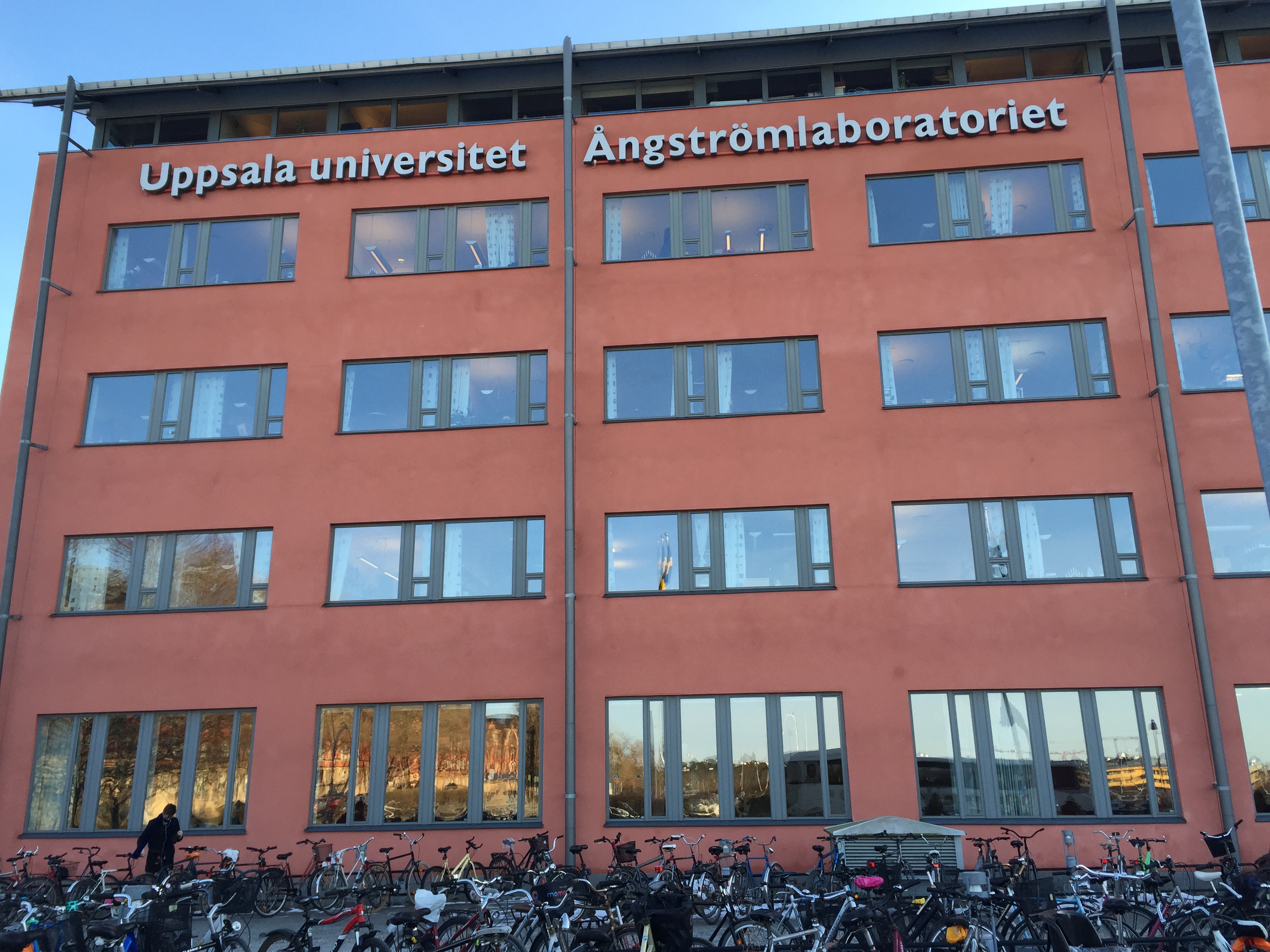

Yesterday’s Persona workshop at Centre of Distance-spanning Technology (CDT) discussed, analysed and illustrated results of the focus group, interviews and value exercises carried out between October and November 2015 at LTU. The aim of workshop, facilitated by Eva Källhammer, was to gain more knowledge and deeper understanding about the culture climate change at LTU regarding gender equality. Persona is also one of the methods and tools we use to promote the ownership of the change process which is a key success factor when striving for sustainable change of structures and culture of the university. LTU Advisory Board members, HR and staff of CDT and the Computer Science Department attended this two-hour workshop.
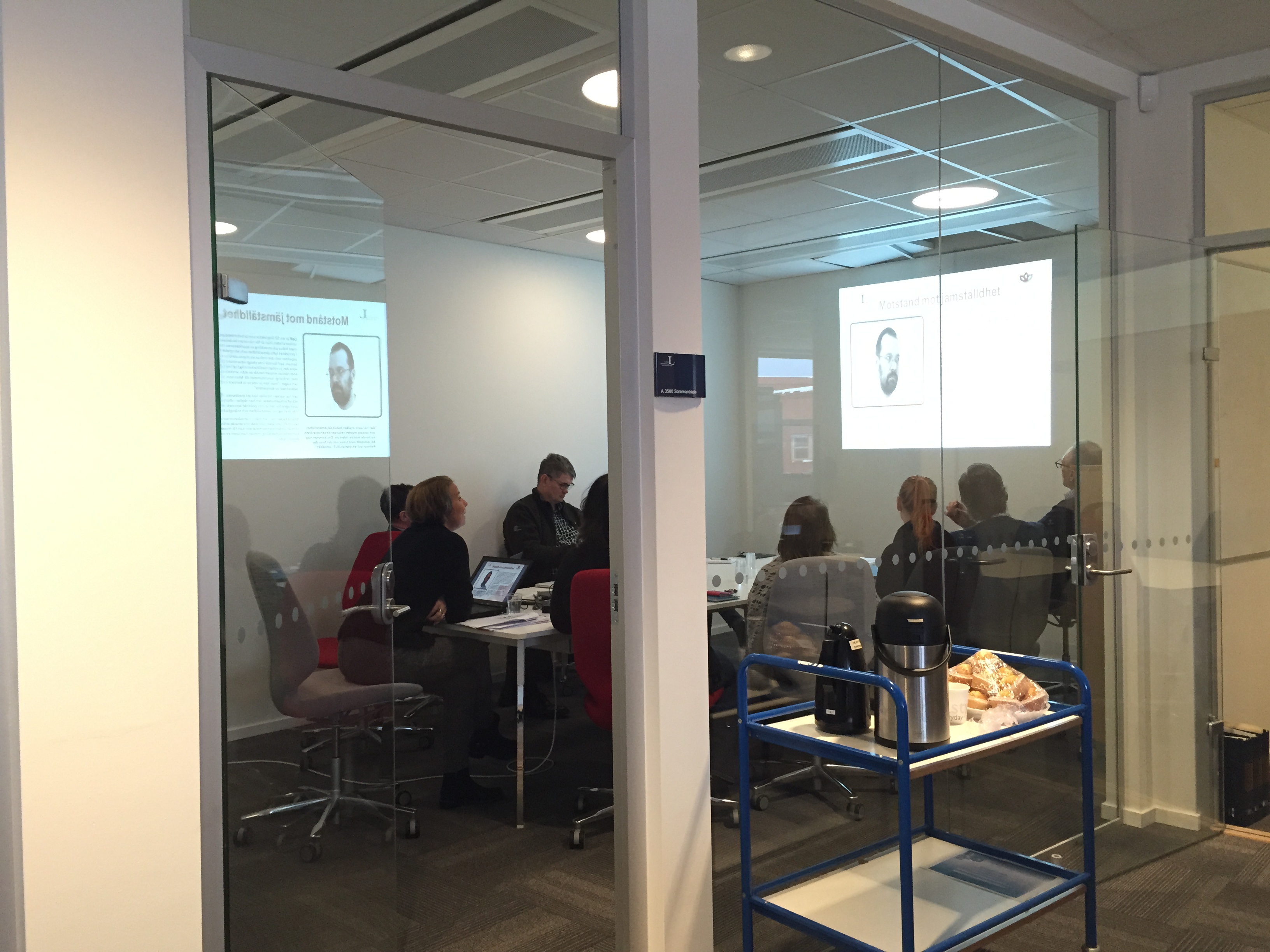
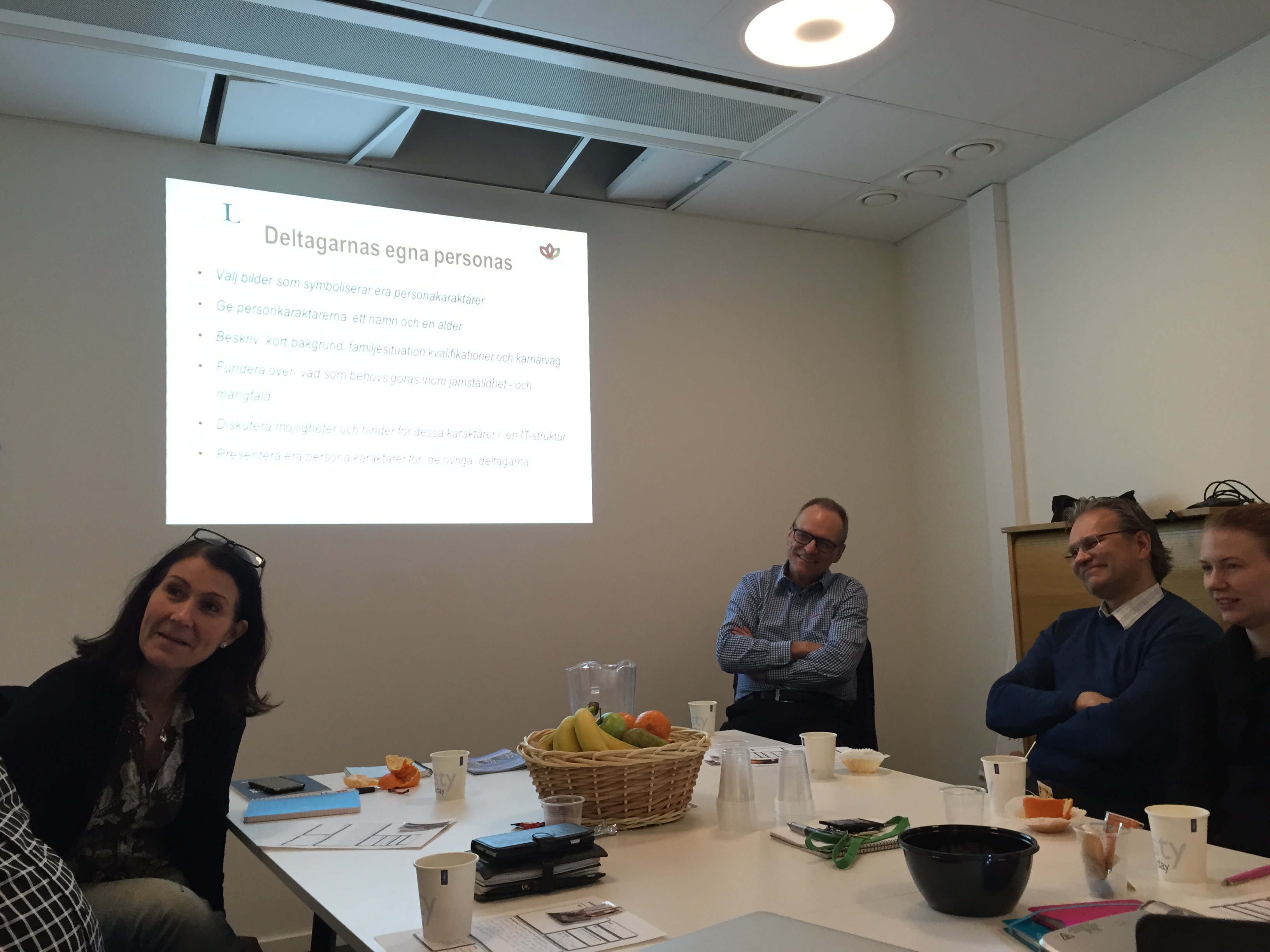

New projects approved for funding from EU Structural Funds. The project, Gender Contact Point, will be funded 2016-2018. The project initiated and coordinated by Paula Wennberg, Luleå University of Technology is collaboration between academia and ICT industry. The project aims to enhance the exploitation of research results in innovation and gender and enables a more easier access to research results for companies and surrounding society.
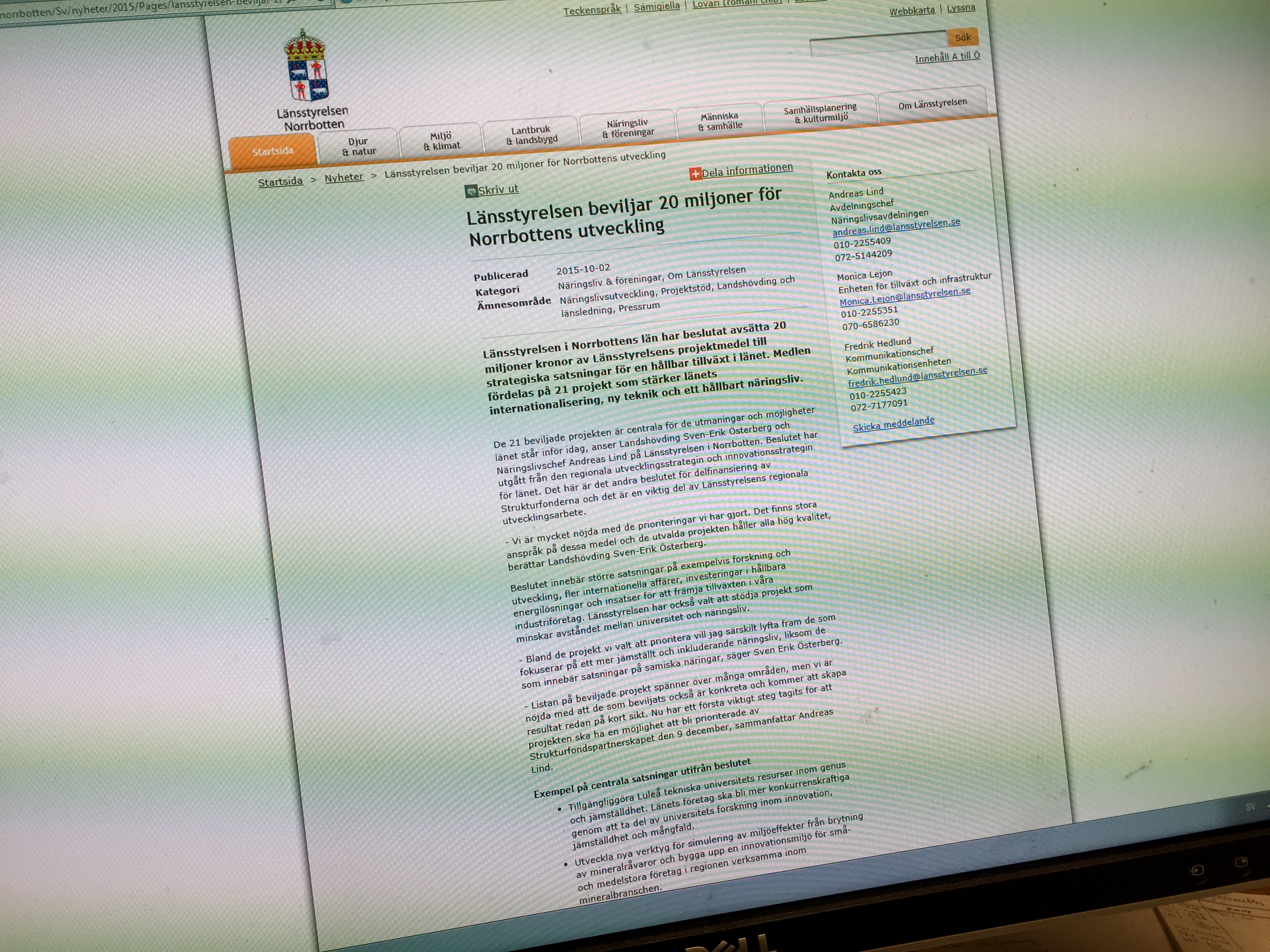
Powered by Multicategories for Joomla!2.5